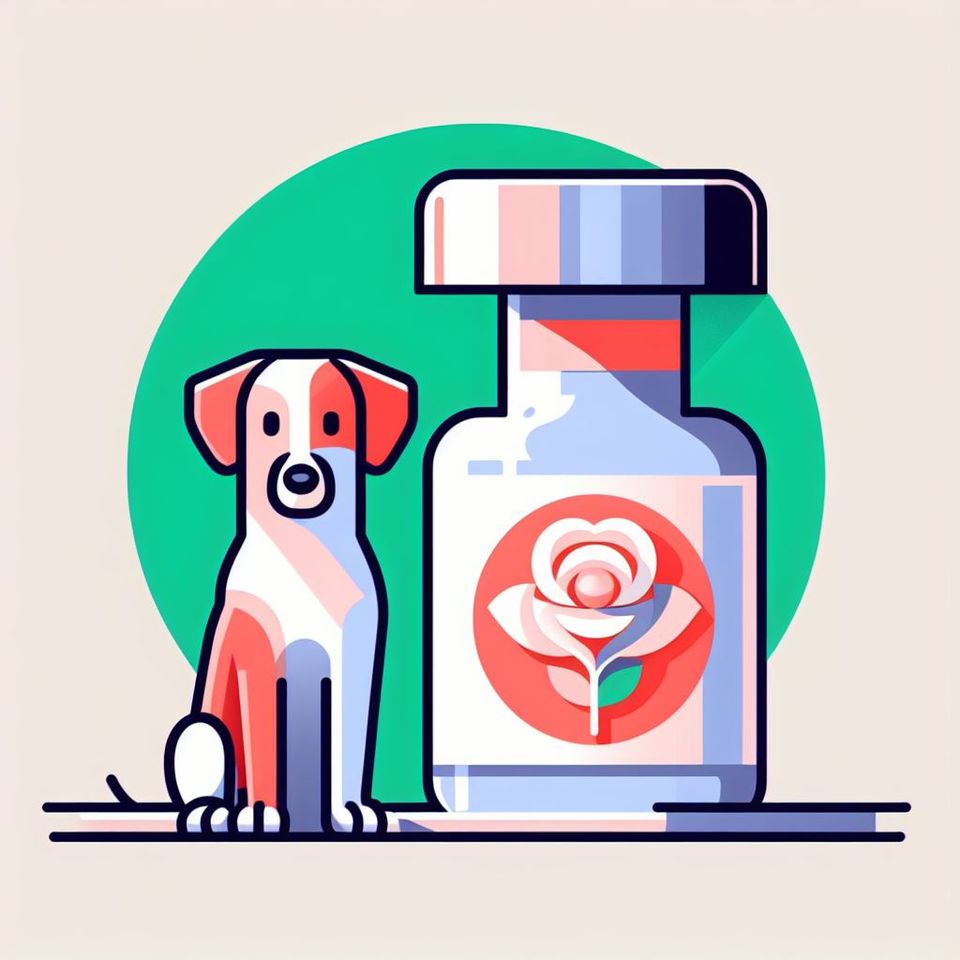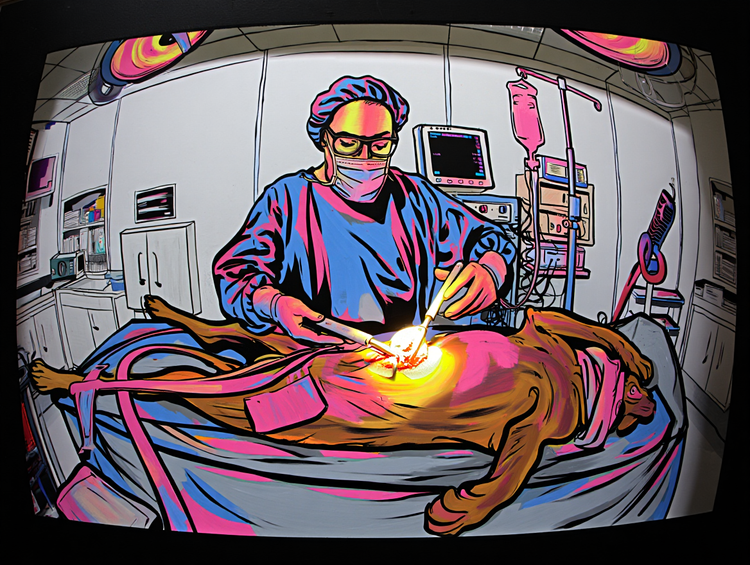What Do You Call Drugs?

"Lokivetmab".
It sounds like a viking farmer cursing the discovery of diarrhea in his goat kids. But this awkward mouthful is in fact the generic name of an important veterinary medication. The drug has other names too, but they mean the same thing. It's "full" name is: caninized anti-interleukin-31 monoclonal antibody.
That's it's chemical name, which tells you pretty much exactly what the drug/molecule/chemical does. In lokivetmab's case, it's a microscopic protein molecule (i.e. antibody), genetically modified to seem like it came from a dog (caninized), and it sticks to (anti) one very specific type of little molecule that helps white blood cells communicate (interleukin-31). To be even more precise (are we at pedantic, yet?), lokivetmab is only one of many different possible types of possible antibodies that could stick to interleukin-31 (i.e. it's monoclonal).
There in the chemical name we have a complete description: the medication's type and purpose. And yet, we get "lokivetmab". Which is easier to say, but you know, not that easy! It's a generic name, because we need something to call it in research papers that doesn't require an additional two lines of print, so we give it a generic name.
Scientists try to be understandable, they really do. Generic names have to be shorter than the chemical name, but they're still standardized to some degree. For example, anytime you see "-mab" in the name of a drug, for instance, it means it's a monoclonal antibody. Because lokivetmab is an important veterinary drug, I'm gonna assume that's the story there. But scientists are also often pop culture nerds, and sometimes they just get a kick out of naming things after super heroes and video games.
But lokivetmab won't work with the public, sorry.
I'm not calling any of you Muggles dumb or ignorant. It's just that science has a different language for things, which can be confusing. If the maker of lokivetmab tried to sell lokivetmab as "lokivetmab", they'd probably get sued by Marvel for copyright infringement. Just because you have a technical name for something, doesn't mean it can sell. It doesn't sounds all that nice to pour "heat-treated bovine mammary gland secretions" into your Cheerios on Sunday morning.
Salespeople need something that sounds good, and "lokivetmab" doesn't. It also has the problem of not being exclusive enough. There's the boring generic name, which anybody can use to describe the drug, or the even-more-boring chemical name, which almost nobody can even remember without looking it up (what's up pharmaceutical chemists!).
Just imagine you're a multinational pharmaceutical giant, like Zoetis, who's just spent tens or hundreds of millions of dollars to create a new drug. Zoetis sounds like another super hero planet where science-minded anthropomorphic animals speak with Swiss accents, but it's actually based in Parsipanny, New Jersey. They have a market cap of about 80 billion dollars, and they make animal health products; anything from pig vaccines to monitors for diabetic cats.
One of Zoetis's "blockbuster" drugs is called Cytopoint. Doesn't it sound like a resort at the end of a tropical peninsula? Actually, it's one of the main reasons Zoetis dominates the billion-dollar-a-year market for treating dogs with skin allergies. "Cytopoint" is a nice, crisp name, like a laser mounted on top of a sleek, robotic dog running on solar power. It sounds modern, precise, advanced.
Which is precisely why Zoetis made it up. They had no interest in trying to sell Cytopoint by it's chemical or generic name. Indeed, it might have been impossible to! What's that line from Shakespeare about the intangible quality of descriptive terminology's role in the olfactory pleasure derived from the reproductive organs of an Angiosperm with pinnate leaves and basal stipules?
Cytopoint sold, and it sold quite well. It still does, actually, I use it in the clinic all the time. It's under patent, so only Zoetis can sell it right now, but there's more to it that this glossy, confidence-inspiring name. It's a remarkable drug. It's provided rapid, safe relief to millions of suffering animals. Probably hundreds of millions. Along with its spectacular efficacy, it has a magnificent safety record. It's an absolute marvel of modern medical science.
That's not always the case with pharmaceutical products. But in this case, the slick name is backed up by a great drug. That's what makes it a blockbuster. Cytopoint gets the job done.
But Cytopoint is just one company's attempt to make something dorky and science-y sound fresh and sellable. And as veterinarians, we have to be careful to not get too influenced by deep pockets. Let them make products, we'll use them if they're good. But woe be to us if we stop using our scientific knowledge and just fall for whatever shiny new thing comes out of the box. We get to decide what we call these medications, and I say we be as precise as possible.
Not that the pharma companies are going to agree, and I can't blame them. Exactly no one in the Zoetis marketing department would vote in favor of dropping this glamorous moniker in favor of it's frumpy, generic cousin:
"lokivetmab".*
*This is the word I use in my medical records instead of "Cytopoint". Yeah, we're pedantic now.





Comments ()